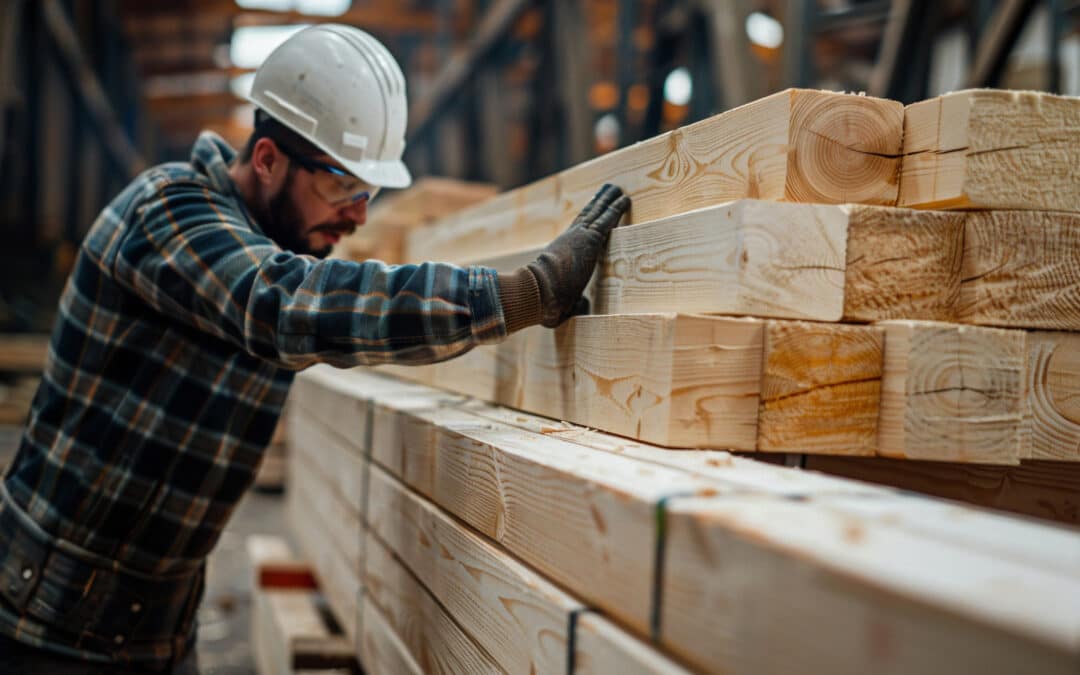Timber has stood the test of time as one of the most reliable and versatile building materials. Its natural strength, durability, and adaptability make it a top choice for everything from structural framing to architectural finishes. At Integrated Timber Solutions, we work with timber every day, and we know exactly why it continues to be trusted by builders and designers across industries.
Understanding the Natural Strength of Timber
Timber is incredibly strong thanks to its natural fibrous structure. Inside each piece of timber are long, aligned cells that give it both tensile and compressive strength. This means timber can resist forces that try to pull it apart, while also bearing heavy loads without buckling. These properties make it ideal for supporting weight, absorbing stress, and withstanding the demands of construction environments.
Choosing the Right Timber for Strength
Not all timber offers the same level of performance. Different species vary in density and strength, which affects their suitability for specific applications. Hardwoods such as oak, ash, and hickory are denser and typically stronger, making them a good fit for structural elements, flooring, and long-term outdoor use. On the other hand, softwoods like pine, spruce, and fir are lighter and easier to handle, while still offering excellent strength for general construction and framing.
Selecting the right species and grade of timber is crucial in ensuring structural integrity. At Integrated Timber Solutions, we help our customers make informed choices based on the demands of their project and the performance characteristics of different timber types.
How Timber Compares to Other Materials
Compared to materials like steel and concrete, timber holds its own when it comes to structural performance. Its strength-to-weight ratio is one of the best among building materials, allowing it to support significant loads without adding excessive weight to the structure. This not only reduces transportation and handling costs but also simplifies the construction process.
Another advantage is timber’s natural flexibility. It can absorb movement and vibration without cracking or breaking, which makes it particularly valuable in environments prone to impact or seismic activity. When properly treated and maintained, timber is also highly durable, offering long-term reliability even in challenging conditions.
Quality Timber, Built to Perform
At Integrated Timber Solutions, we go beyond just supplying timber – we make sure it’s fit for purpose. Our process starts with sourcing high-quality logs, followed by precision milling that retains the grain’s natural strength. We dry our timber to optimal moisture levels to reduce the risk of warping or movement, and every piece is carefully graded and inspected to meet industry standards.
This commitment to quality ensures that the timber we provide performs consistently, no matter the application.
Why Strength Matters
The strength of timber isn’t just a technical feature – it’s what keeps your structure standing strong for years to come. Strong timber leads to safer builds, fewer repairs, and better long-term value.
Building with Confidence
Timber remains one of the most dependable and sustainable materials in the construction industry. Its strength, when properly understood and applied, offers builders a practical and environmentally responsible alternative to more energy-intensive materials.
If you’re looking for reliable, high-performing timber for your next project, talk to the team at Integrated Timber Solutions. We’re here to help you choose the right timber and ensure it’s processed to the highest standards – because when it comes to building strong, we believe timber leads the way.


Recent Comments